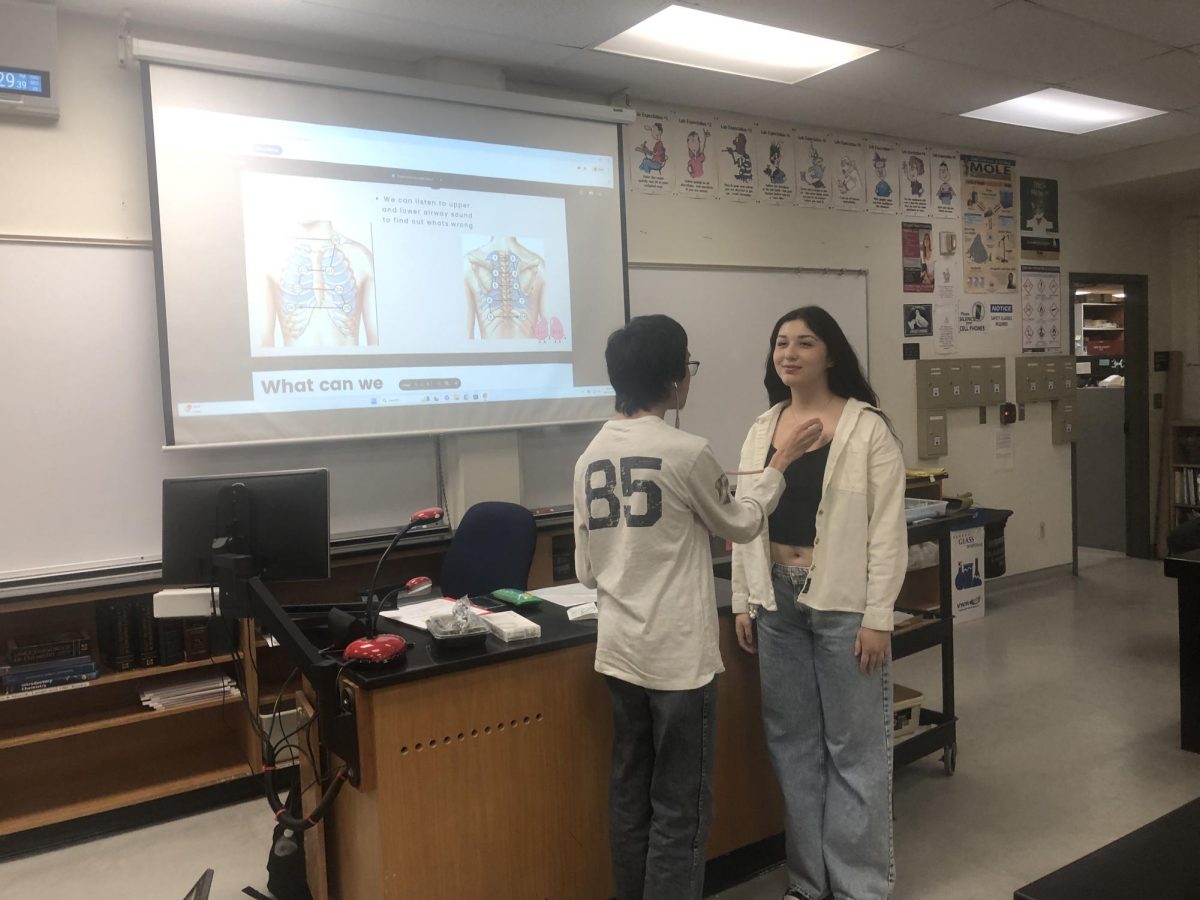We are all told that healthy eating leads to a healthy body and mind, but when does the need to eat healthy become an obsession?
Experts say that someone who obsesses over eating a pure and healthy diet may be suffering from orthorexia. Orthorexia nervosa translates to “fixation on righteous eating,” but is not yet recognized as a psychiatric disorder.
The disorder was first coined by Dr. Steve Bratman when he found that his patients were overly diet-obsessed with eating only healthy and pure foods and as a result, they were showing signs of obsessive compulsive behaviors, participating in self-harm, developed low self-esteem and were choosing not to eat.
Luckily, it is gaining the attention it needs thanks to various social media outlets.
Communications major Savannah Matias said she just recently heard about orthorexia on Facebook.
“At first I thought it was a joke or something, but then I read about it more and it made sense,” said Matias. “It is something that definitely makes sense in today’s world since people obsess over body image so much.”
With social media pressures more prevalent in today’s society than ever, young teens and adults (especially females) are made to think they need to eat well and look a certain way to gain social acceptance, but are not given the proper tools on how to manage these diets.
According to Judy Mahle Lutter in her book “The Bodywise Woman,” up to 90 percent of teenagers diet regularly, and up to 50 percent of younger kids have tried a some kind of diet.
Dieting is something becoming increasingly popular among young teens who strive to adhere to the social norm of what they are told they should look like.
In a study done by Creighton University of Medicine, it was found that severe dieting is a main trigger for eating disorders in young adults.
“In adolescents who develop eating disorders, those that were labeled as ‘severe dieters’ had an 18 times greater chance of developing an eating disorder; with moderate dieting, 5 times greater, non-dieters 1:500 chance of developing an eating disorder,” according to the study.
Local Ventura Nutritionist Carrie A. Franklin insists that it is imperative for people to strive for a healthy diet, but to understand the limits and to be able to identify when it is becoming an obsession.
“It is good to eat healthy foods, it is normal to want to eat foods that do not have pesticides and additives added, but it is not healthy to obsess about eating only pure foods all of the time,” Franklin said. “It is not healthy to avoid eating unless the food is pure.”
Dr. Franklin suggests alternative tools to those who want to start eating a more mindful diet, but in a healthy way.
“Shopping at healthy food stores, and buying products that have no additives, these are all healthy ways to move forward in life,” said Franklin. “I would hope people can be more flexible when they cannot find the pure foods that they would like to consume.”
The main question lies in what causes eating disorders such as orthorexia to begin with. These reasons could range anywhere from genetics to traumatic experiences and even personality traits including low self-esteem, obsessive thoughts and more.
Franklin suggests to those who believe they may be suffering from orthorexia, or any eating disorder, to ask themselves these questions:
1. Does your lifestyle interfere with relationships or work, family or even friends?
2. Does your diet make you feel better than other people make you feel?
3. Do you turn to healthy foods as your primary source of life meaning or personal happiness?
4. Do you use pure/healthy foods to make you feel more secure?
5. If you stray at all away from your pure food program, do you then feel a compulsion to start a cleanse?
6. Has your desire for healthy foods expanded to unreasonable boundaries to become a disability which then controls your life rather than furthering your goals?
7. Do foods help you feel in control more than they truly should?
If you answered yes to majority of these questions and feel you may be suffering from an eating disorder, Moorpark offers free peer nutrition counseling to discuss ways to improve how you feel through healthy eating.
Please visit the Health Center or call (805) 378-1413 for more information if you feel you need help managing your eating habits.
















